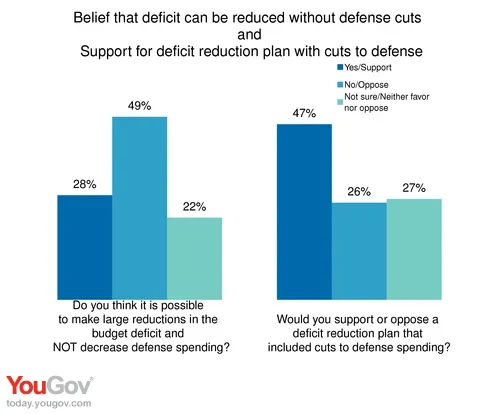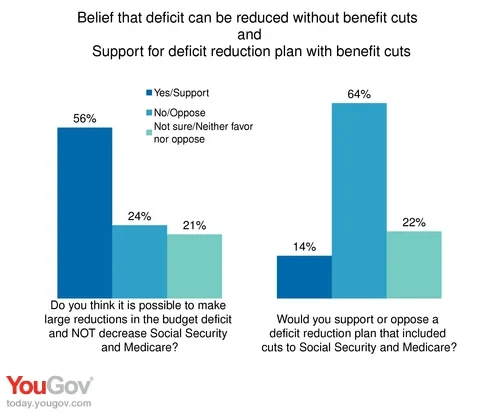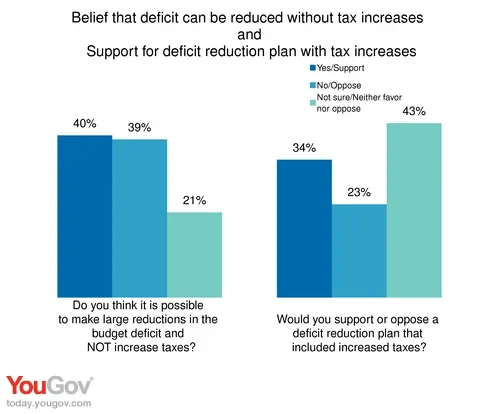Americans have little hope that the Congressional super-committee will be able to come up with a plan to reduce the budget deficit that can be passed in Congress. In fact, a majority in this Economist/YouGov Poll even disapprove of the creation of this committee and its attempt to cut the deficit under the threat of large automatic cuts if they do not succeed.
As part of the debt ceiling increase legislation, Congress created a 12-person committee equally divided between members of the House and the Senate and between Republicans and Democrats, They are to report their recommendations in November. If they do not, or if their recommendations are not enacted, there will automatically be large across-the-board budget cuts, including for defense, Social Security and Medicare.
| Do you approve or disapprove the creation of this ’Super Committee’? | |
|---|---|
Strongly approve | 7% |
Somewhat approve | 24% |
Somewhat disapprove | 19% |
Strongly disapprove | 31% |
Two in three don’t expect the committee to agree on a solution that will avoid the triggers; 54% think that even if the committee agrees, Congress will not.
As for the public, they see one possible way out that they would accept -cutting defense spending. Half say that cutting defense will be necessary in order to make large reductions in the deficit. And nearly half would support that solution.

Republicans oppose defense cuts to reduce the deficit, but are divided on whether or not defense reductions will be necessary.
Americans overwhelmingly reject two options -cutting Social Security and Medicare or reducing spending on education and student aid. Majorities oppose each of these potential solutions; they also say that it is possible to reduce the deficit without taking either action.

There is more division on two other options: raising taxes and requiring a balanced budget Constitutional amendment (something a majority of Americans have supported for decades). Americans are closely divided on whether it will be necessary to increase taxes to reduce the budget deficit, but somewhat less closely split on the
need for a balanced budget amendment.
Americans support a balanced budget amendment by better than two to one; they are divided on tax increases. 34% would support a deficit reduction plan that increased taxes, but 43% would not.

Americans want a say in government policy decisions: by 54% to 15% they favor a national referendum system to give Americans votes on policies. And many believe the public is capable of making such decisions. 42% believe voters are capable of evaluating policies. 43% disagree. Democrats are less sure than Republicans are
that voters are capable of making these decisions.
Economist/YouGov poll archives can found here.
Photo source: Press Association






